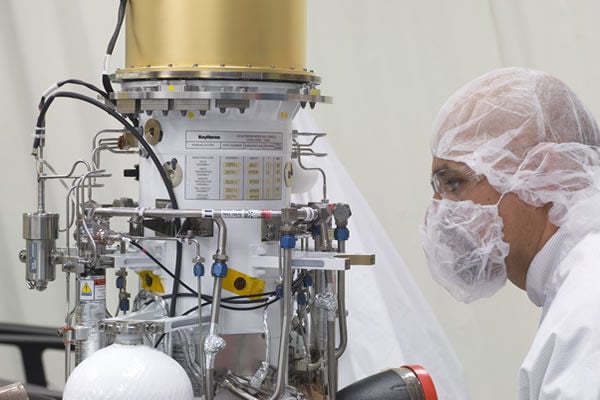Raytheon Co. and United Technologies Corporation say they’ve won the necessary regulatory approvals for their all-stock merger and expect to close the merger prior to the opening of trading on the New York Stock Exchange on Friday, April 3.
Upon the closing of the merger, United Technologies will be renamed Raytheon Technologies Corporation, and its common stock will trade on the NYSE under the ticker symbol “RTX.”
As previously announced, Tucson-based Raytheon Missile Systems will be merged into a new business unit called Raytheon Missiles & Defense, headquartered in Tucson and led by current Missile Systems President Wes Kremer.
Raytheon Missile Systems is the Tucson region’s biggest employer, with about 13,000 local employees who develop and build many of the nation’s front-line weapon systems, including Tomahawk cruise missiles, the Sidewinder air-combat missile and the Standard Missile series of ship-defense missiles and ballistic missile interceptors.
The last full day of trading in the shares of Raytheon Company is expected to be Thursday, April 2, the companies said.
Upon the closing of the merger on Friday, each share of Raytheon Company common stock will be converted into the right to receive 2.3348 Raytheon Technologies shares.
The first day of trading for Raytheon Technologies shares also is expected to be Friday, which coincides with UTC’s planned spinoff of its Carrier heating and cooling and Otis elevator businesses.
United Technologies makes jet engines for both commercial airliners and military planes through Pratt & Whitney and aircraft avionics and communications equipment through Collins Aerospace.
Though UTC is technically acquiring Raytheon, the companies have billed the deal as a “merger of equals” with combined annual revenue of about $75 billion.
In a prepared statement, Raytheon Chairman and CEO Tom Kennedy said the deal will benefit customers and shareholders alike.
“We are more than just two businesses coming together — Raytheon Technologies will be uniquely positioned to deliver advanced and innovative solutions to our customers while delivering significant value to share- owners,” Kennedy said.
United Technologies Chairman and CEO Greg Hayes will be CEO of the merged company, while Kennedy will be executive chairman.
The regulatory process requires the divestitures of Raytheon’s military airborne radios business and United Technologies’ military Global Positioning Systems and Space Optical Systems businesses, which are all expected to be completed following the merger, the companies said.
Multiyear SM-3 contract
Raytheon Missile Systems has been awarded a $2.1 billion, multiyear contract to produce its standard Missile-3 ballistic missile interceptor.
The contract from the U.S. Missile Defense agency is the first multiyear contract for the SM-3 approved under special authority from Congress and calls for Raytheon to produce an undisclosed number of SM-3 Block IB interceptors through 2023.
The SM-3 IB is currently carried by U.S. and Japanese warships as part of the Aegis Ballistic Missile Defense system for regional defense against short- to intermediate-range ballistic missiles.
The Block IB version started full-rate production in 2017, and Raytheon says it has delivered more than 400 SM-3 rounds over the lifetime of the program.




